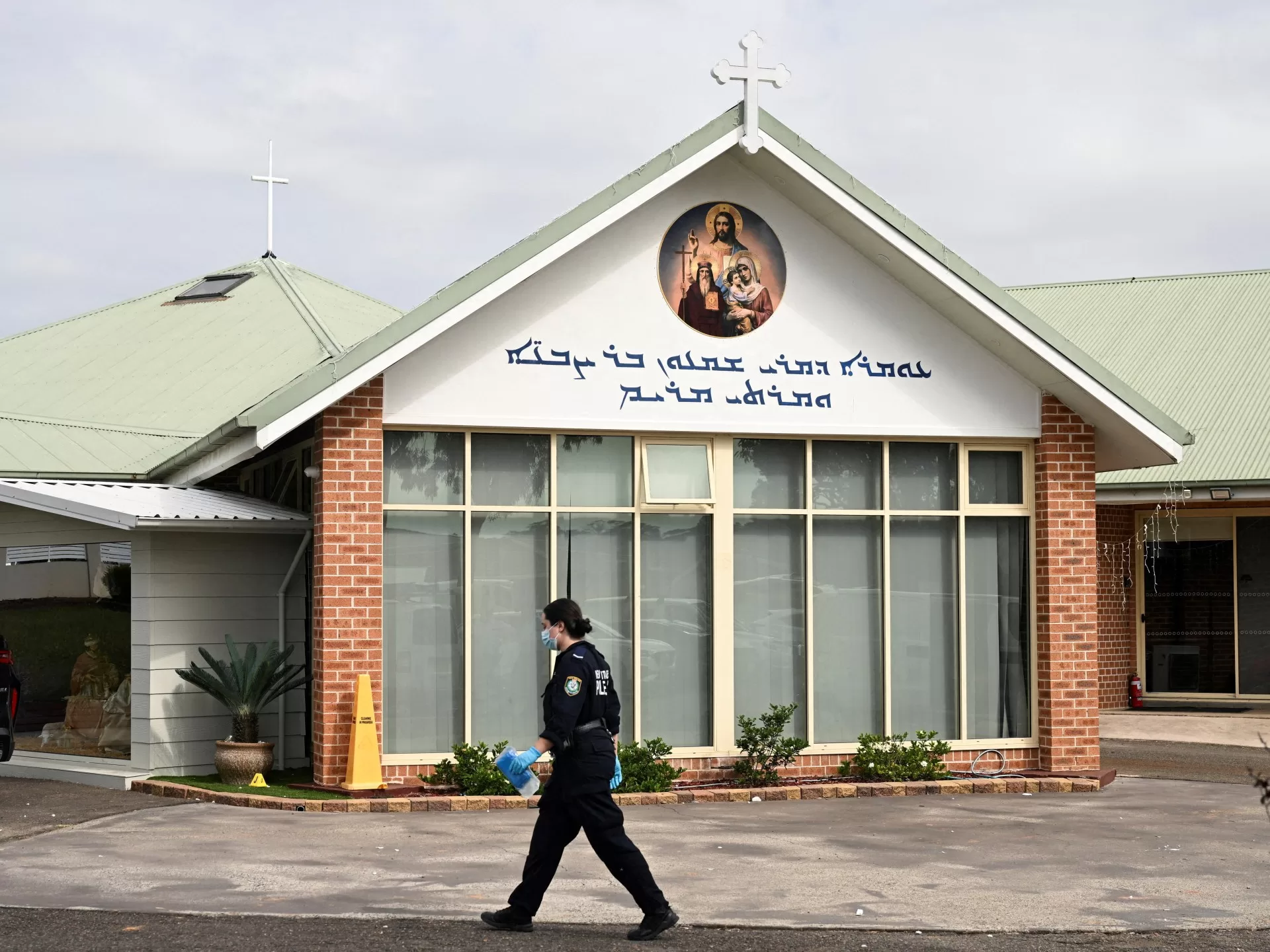More than 400 officers were involved in raids across Sydney following the stabbing of an Assyrian bishop last week.
More than 400 police officers executed 13 search warrants at properties across Sydney overnight, with the suspects considered an immediate threat, police said on Wednesday. Intelligence officials warned that counterterrorism cases are increasingly focused on minors “vulnerable to radicalisation”.
Officials said the seven detainees, aged 15 to 17, were linked to a network of which a 16-year-old member had allegedly been involved in a recent attack on a bishop, which took place during a livestreamed sermon at a church in western Sydney on April 15. The raids were spurred by concern that the network may have been plotting further attacks and posed an “unacceptable risk” to the public, they added.
Five other teenagers were also being questioned by a joint counterterrorism team, comprising federal and state police as well as the Australian Security Intelligence Organisation (ASIO), the nation’s main domestic spy agency, and the New South Wales Crime Commission, which specialises in counterterrorism and organised crime.
“We will allege that these individuals adhered to a religiously motivated, violent extremist ideology,” New South Wales Police Deputy Commissioner David Hudson said.
“It was considered that the group … posed an unacceptable risk and threat to the people of New South Wales,” he said, adding that investigations had convinced the authorities that an attack was “likely”.
‘Vulnerable’
Police were quick to describe the stabbing of the bishop last week as a “terrorist” act, which they said was fuelled by “religiously motivated extremism”.
The suspect of last week’s knife attack, which injured the bishop and another priest, was charged on Friday with committing a terrorist act.
The attack led to unrest in the local community, and western Sydney has been on edge since.
Australian Federal Police Deputy Commissioner Krissy Barrett said investigators had found no evidence that the network had any specific targets or regarding the potential timing of any intended “violent act”.
She said the police operation was not linked to the upcoming Anzac Day on Thursday. The public holiday, when Australians remember their war dead, has been a “target of extremists” in the past.
ASIO Director-General Mike Burgess confirmed that his organisation was involved in Wednesday’s operation.
“Australia’s security service is always doing its thing to provide security intelligence that enables the police to deal with these problems when we have immediate threats to life or anything else that’s evolving,” Burgess said.
Investigations of minors peaked at 50 percent of ASIO’s “priority counterterrorism caseload” a few years ago. After falling back, the number of minors under investigation is rising again for reasons including social media content, Burgess said.
“They’re a vulnerable cohort,” he warned.
